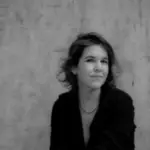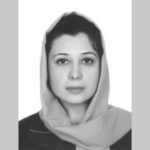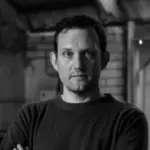Concept of Synthesis in Yugoslav Socialists–Synthurbanism of Vjenceslav Richter
Delve into the avant-garde inclinations of Yugoslav socialism in our second SPACE Studies lecture video, where Dr Danica Stojiljković, Research Assistant Professor at the University of Belgrade – Institute for Multidisciplinary Research, takes us on a journey through the fascinating world of Yugoslav socialism’s socio-political and cultural milieu.
In this captivating presentation, which was presented at the SPACE International Conference 2021 on Architectural Design and Theory, Dr. Stojiljković explores how the concept of synthesis became a central theme in the realms of architecture and visual arts within the context of Yugoslav socialism. This avant-garde movement sought to transcend the limitations of functionalist and formalist concepts, advocating for organic systems that harmonize the natural and built environments within an integral framework. One of the key figures in developing this concept of synthesis was the visionary architect Vjenceslav Richter. During the early 1960s, Richter embarked on a journey of exploration, utilizing experimental models to investigate spatial-plastic relationships. His efforts culminated in the development of synthurbanism, a novel approach that provided synthetic solutions to urban functions. Richter’s theory of living synthesis was deeply rooted in the fundamental principles of socialist society, emphasising harmonious relations between individuals and the collective, as well as the integration of the biological and social aspects of human existence.
This presentation sets out to demonstrate how the original ideological agenda of Yugoslav socialism, steeped in the values of Marxist humanism, offered a comprehensive social and philosophical framework for the concept of synthesis. By focusing on Vjenceslav Richter’s architectural and urbanistic ideas, we aim to provide a broader context for understanding the profound impact of synthetic thought in Yugoslav society. Richter’s utopian model was built upon the premise that the environment represents a complex system of interconnected functions, where living spaces and humans are intertwined within interactive processes, ultimately leading to sustainable urban living.
🎙️ Presenter: Dr Danica Stojiljković, Research Assistant Professor at the University of Belgrade – Institute for Multidisciplinary Research
📖 Article Reference: Title: The Concept of Synthesis in Yugoslav Socialist Society – Synthurbanism of Vjenceslav Richter
Author: Dr Danica Stojiljković, Research Assistant Professor at the University of Belgrade – Institute for Multidisciplinary Research
Published in: E-Proceedings – SPACE International Conferences, April 2021, ISBN: 978-1-9162841-8-0, p.20-27. Article DOI: https://doi.org/10.51596/CBP2021.GKJS9365
If you’re intrigued by the intersection of architectural theory, urban planning, and the socio-political dynamics of socialist Yugoslavia, this presentation is a must-watch. Like, share, and subscribe to SPACE Studies for more enlightening discussions on the dynamic relationship between society, culture, and space. Stay tuned for more engaging content that unravels the mysteries of the past and explores the possibilities of the future.













